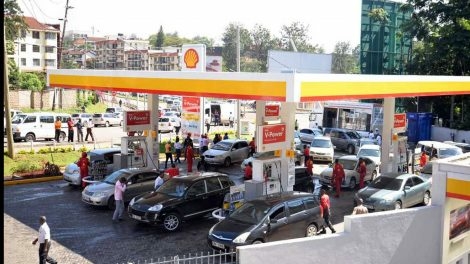The Nigerian Midstream and Downstream Petroleum Regulatory Authority (NMDPRA) says it will no longer fix prices or release templates for Premium Motor Spirit (PMS).
Authority Chief Executive (ACE), Mr Farouk Ahmed, who said this at a news conference in Abuja on Friday, said that market forces would henceforth dictate prices under the liberalised market.
“As far as we are concerned in the NMDPRA, this is not like before when the PPPRA fixes the price; in a deregulated market, it is the market force that dictates the price,” he said.
Recall that the development was sequel to the removal of subsidy on PMS known as petrol.
President Bola Tinubu had in his inaugural speech on Monday said fuel subsidy regime had ended with the commencement of his administration.
Ahmed, however, said the market was now open for everybody that would import as far as they met all the requirements.
“So, it is not about the Nigerian National Petroleum Company Limited (NNPC Ltd) alone.
“We put the regulation in place, we make sure quality control is complied with, we make sure the product is there and we give licence to prospective importer.
“We make sure we guide the operations of everyone in the sector whether at the depot or wherever the product is but we will not put a cap to say this is what the price must be,” he said.
According to Ahmed, the role of the NNPC is to fix prices of the petrol it imported and not take over the responsibilities of the Authority.
“In the case of the NNPC, the organisation is the sole importer at this point. We told the NNPC to recover its costs because they know how much it cost them to import the product and sell it.
“Of course, we also know how much shipping, offshore, ex-depot and ex-pump are. But we cannot tell them to sell at a price because the market is deregulated,” he added.
The NMDPRA boss also disclosed that the Federal Government has officially scrapped petroleum equalisation as well as the national transport allowance.
He said the NMDPRA, the federal government and Consumer Protection Commission (FCCPC) would mount aggressive monitoring of activities in the downstream sector to prevent profiteering by petroleum marketers.
Ahmed further disclosed that marketers are now free to source their foreign exchange anywhere around the world to import petroleum products and recover their costs without impediments.
On where the importers will source their forex from, Ahmed said the CBN would not give dollar to anyone because of open market, adding that anyone willing to import should get the dollars from anywhere to import.
According to him, anyone willing to open a letter of credit from any part of the world can do that to import.
“That marketers can source their forex from anywhere is the beauty of the liberalised market that the NMDPRA has introduced based on the provision of the law”.
Ahmed said that the market would henceforth be modulated to allow the fluidity of prices, adding that though no template spelt out the pricing components of petrol price.
He said that, “based on this, the price would no longer be static rather depend on the international price of the gasoline market.
“This did not imply that marketers could sell at any price”.
According to him, the NMDPRA and FCCPC will collaborate to curb excesses if certain prices were way above the expected profit margin.
“The market structure will dictate the price swings at every point in time,” he said.
Ahmed cautioned against optimism for cheap petroleum products, saying products may not be cheaper because the company would be buying crude oil at the international price.
“Dangote Refinery is a game changer in terms of accessibility. By the time the NNPC refineries and other modular refineries across the country come on stream, Nigeria will be a net exporter of petroleum products,” he said.










Discussion about this post